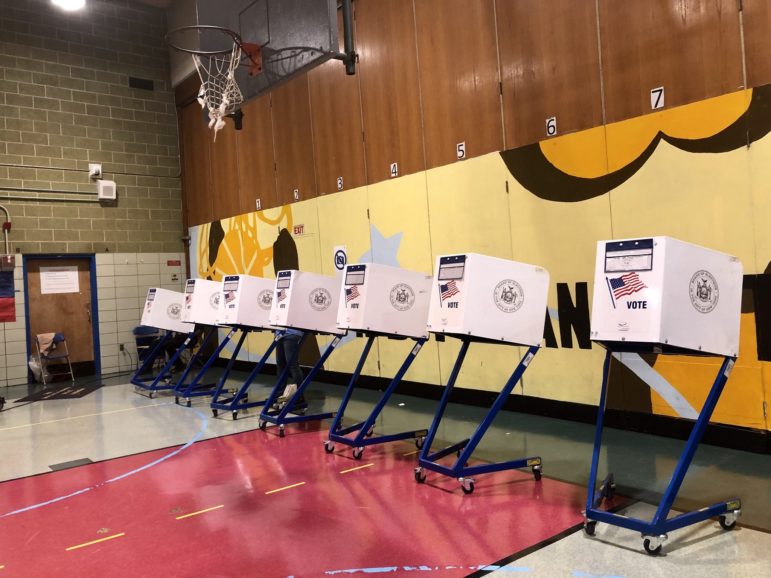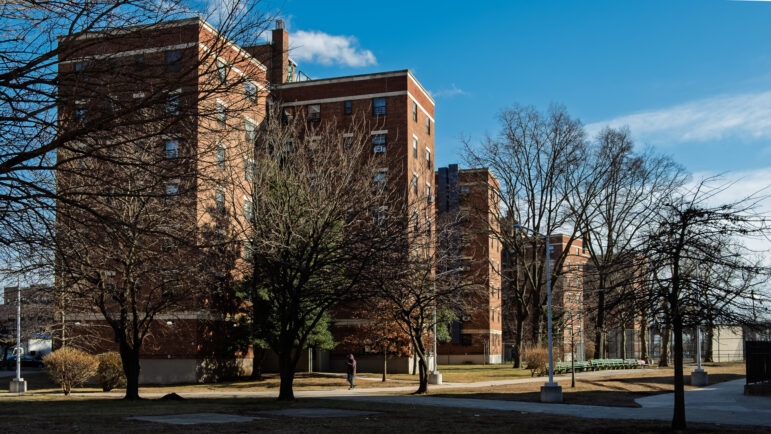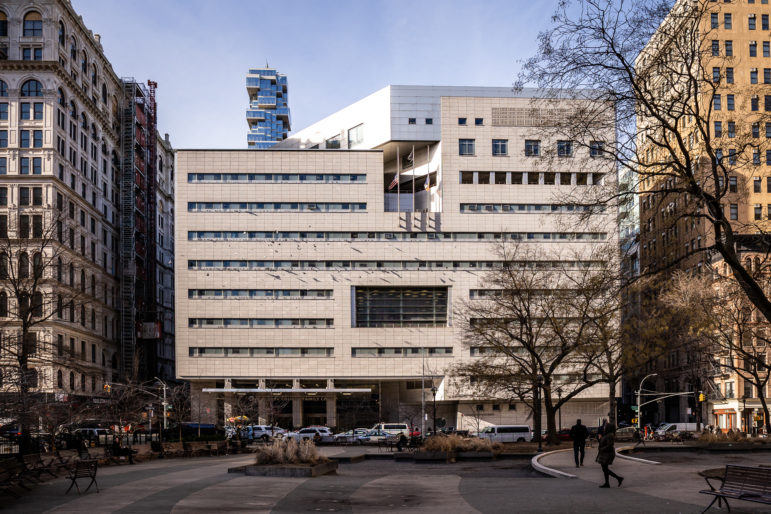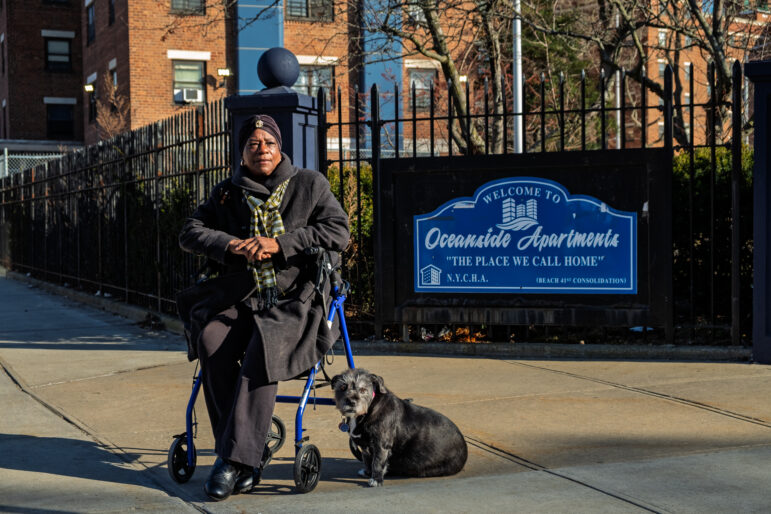‘A number of political insiders are now calling on the City Council to cancel RCV for next year’s elections. Not only would these efforts reject the will of voters, they would also undermine the work of numerous political outsiders who are already running.’

Jeanmarie Evelly
A polling site in Astoria, Queens, in 2019.It’s hard to get 74 percent of New Yorkers to agree on anything, so when that many vote to give people more of a voice in the political process, elected officials must listen.
Or so you’d think.
Last November, New Yorkers voted overwhelmingly to bring ranked choice voting (RCV) to our city in 2021. After years of advocacy, political reformers finally succeeded in their effort to improve how we elect public officials. RCV encourages candidates to seek support from diverse communities, gives voters more choice, and saves money. In cities where it has been implemented, it also has been shown to reduce negative campaigning, which is a welcome change for everyone.
Proponents of ranked choice voting have included leaders from across New York, including Attorney General Letitia James, Congress Member-elect Ritchie Torres, and Public Advocate Jumaane Williams, to name just a few. Our late Mayor David N. Dinkins, who passed away last week, said that RCV “empowers more candidates of color to run without the worry of vote splitting, and encourages issue-driven campaigns over mudslinging.”
Despite the overwhelming support for RCV from voters and reformers, a number of political insiders are now calling on the City Council to cancel it for next year’s elections. Some argue that the City’s Board of Elections is unprepared to educate voters in time—even though the BOE is already beginning its outreach, and primary day is still more than six months away.
Not only would these efforts to cancel ranked choice voting reject the will of voters, they would also undermine the work of numerous political outsiders who are already running for next year’s elections— including more than 100 first-time candidates currently vying for City Council seats. Based on my conversations with other Council candidates across the city, many decided to run because they knew RCV would create a more open system that could give political outsiders a better shot at representing their districts. More candidates than ever are aggressively seeking support from beyond their base, something they might not have done under the old system.
 CityViews are readers’ opinions, not those of City Limits. Add your voice today!
CityViews are readers’ opinions, not those of City Limits. Add your voice today!
Let’s be honest about why some are suddenly against RCV. Ranked choice voting takes power away from political machines and those currently in office, and these political insiders are doing everything they can to stop that power from being taken from them. They want to be able to choose who gets to hold public office and reduce the new power voters now have. As stated recently by Council Member Antonio Reynoso of Brooklyn, current office holders are “concerned about losing their seats,” and their efforts to reverse RCV are about “self-preservation.”
Politicians who are concerned that voters will not understand RCV in time for next year’s elections can start doing something about that now, instead of working to undermine the will of the people. For instance, the City Council could begin its own public education campaign to supplement the Board of Elections’ efforts. As news coverage increasingly focuses on next year’s races, current council members and other elected officials can begin educating constituents on how this new system will work, and the benefits to them and their communities.
One option that is not acceptable, however, is for our elected leaders to throw up their hands and proclaim that ranked choice voting will fail. It has been over a year since voters went to the ballot box and approved this initiative. Why are public officials just now coming out of the woodwork to say we won’t be prepared?
When I entered the race to represent the northwest Bronx in the City Council, numerous people encouraged me to “wait my turn,” saying machine politicians do everything they can to defeat political outsiders like me. All first-time candidates expect roadblocks to be thrown their way, but it is shameful that the power brokers who run this city are now working to change the rules of the game, after the races to replace them have already begun.
Abigail Martin is a social worker and an adjunct professor at the Columbia University School of Social Work and a candidate for City Council in District 11.









One thought on “Opinion: NYers Want Ranked Choice Voting—Don’t Delay Its Implementation”
Yes! Please make it easier for our voices to be heard!!